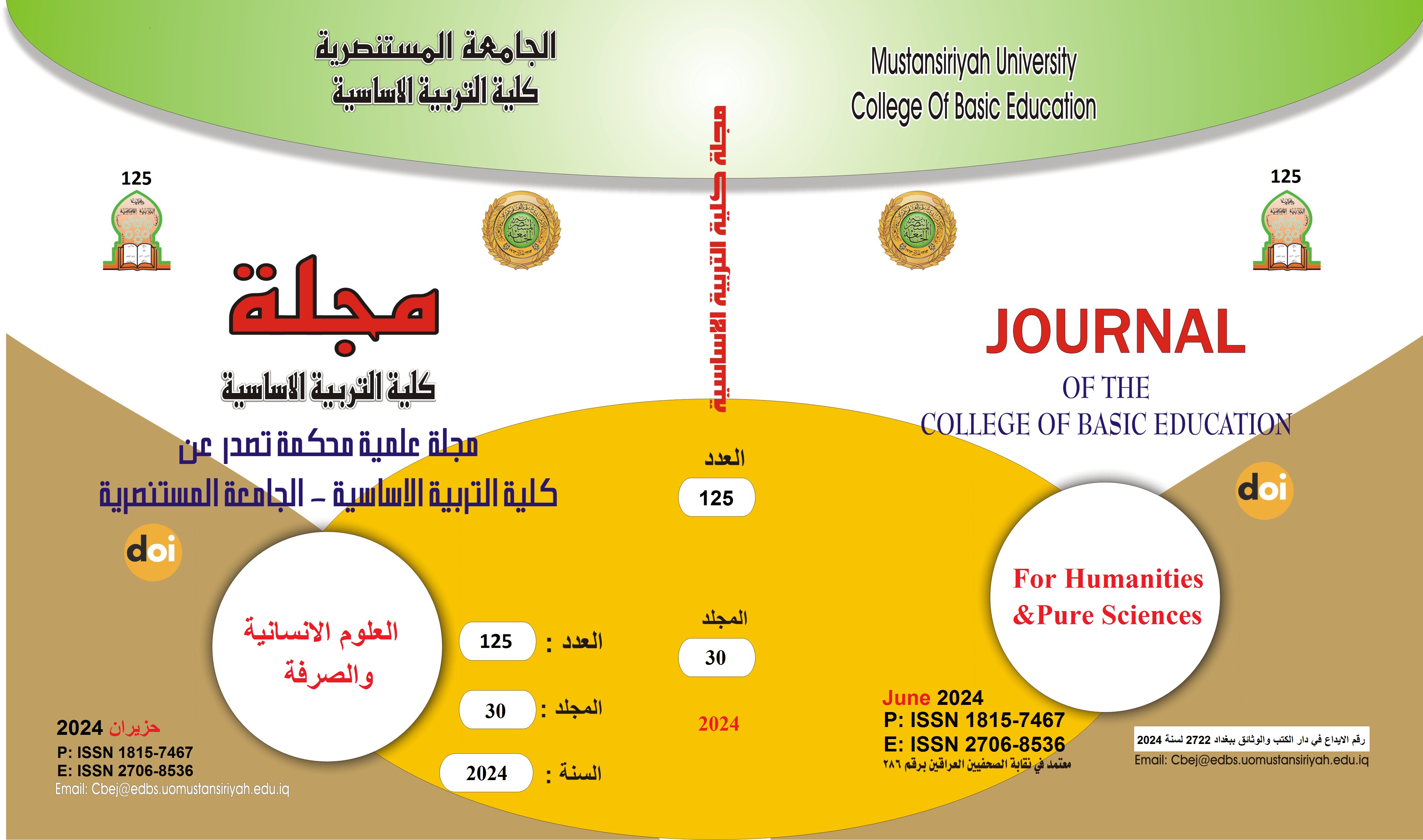The Effect Of The Gist Strategy On The Acquisition Of Concepts Among The Students Of The Fourth Scientific Grade Of Physics And Their Cognitive Motivation
Main Article Content
Abstract
The aim of the research was to find out (the effect of the GIST strategy on the acquisition of concepts among fourth-year scientific students in the subject of physics and their cognitive motivation). And based on an experimental design with two groups, the sample for the research was composed of (54) students representing the students of the (fourth scientific) year of a secondary school affiliated with the General Directorate. For Education / Diyala, which is (Ibn Al-Farid Secondary School for Boys) for the academic year (2023-2024), they were divided into two sections: Section A contained (27) students and Section B contained (27) students. Later, the selection was made randomly, so Section A represented its control group, which was taught using the method followed (normal), and Section B represented the experimental group, which was taught using the GIST strategy. Accordingly, a test was built to acquire the concepts of the subject based on its scientific content, which included (40) objective items from multiple choice. The researcher also adopted a measure of cognitive motivation by (Al-Baidhani) (2015), which was composed of (50) positive and negative items with a triple rating (always applies to me, applies to me sometimes, does not apply to me), and the validity of the test and scale was confirmed, as well as their stability and psychometric properties, after those two groups were rewarded on the variables (count For Former students, chronological age in months, and Otis-Lennon Mental Ability Test. By means of the T-test, the statistical results of the acquisition test of concepts and the cognitive motivation scale showed that there is a statistically significant difference between the scores for the students who were taught with the Gist strategy (experimental group) and the students who were taught in the usual way (the control group) and in favor of the experimental group. In the acquisition test Concepts of Physics. There was a statistically significant difference between the scores for the students who studied using the GIST strategy (the experimental group) and the students who studied using the regular method (the control group) and in terms of the experimental group in the cognitive motivation scale. Based on the results, the researcher had a vision of the necessity: - that it is possible to adopt this The strategy for teaching physics and including it in the curricula used for teaching methods in colleges of education.
Article Details

This work is licensed under a Creative Commons Attribution-ShareAlike 4.0 International License.
